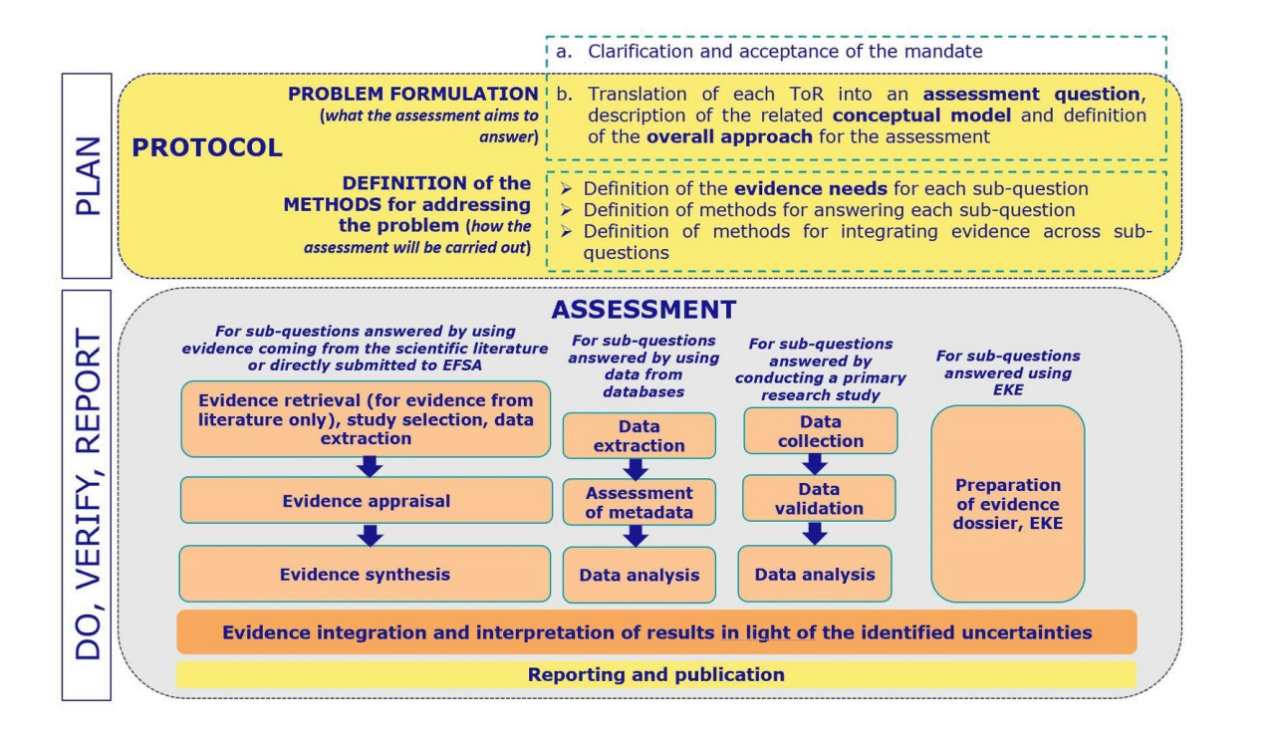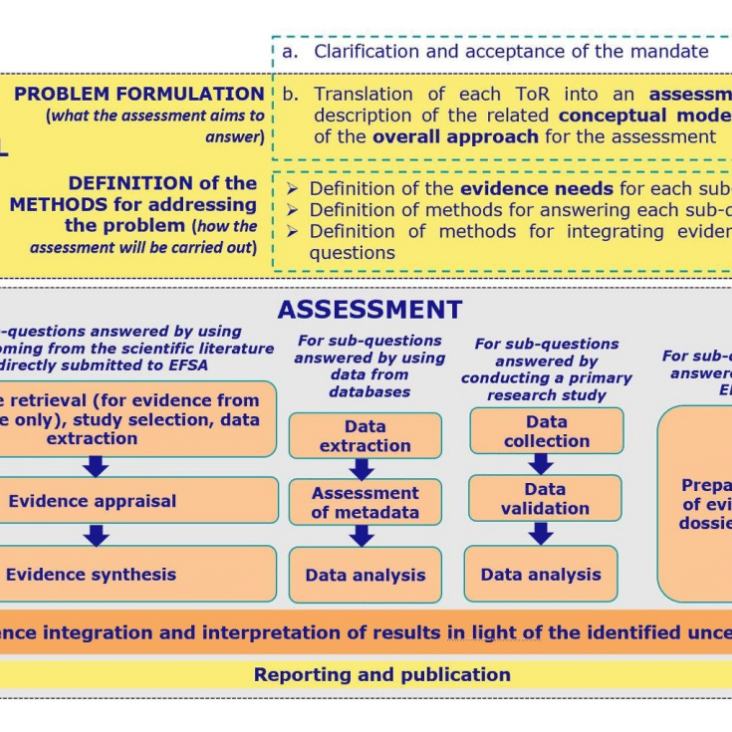Problem Formulation in Food Safety Assessments conducted by the European Food Safety Authority
RSI investigators recently provided advise to the European Food Safety Authority (EFSA) on the problem formulation step in the EFSA scientific assessment approach shown in the figure below. The recommended problem formulation framework is designed to translate the mandate into well-formulated assessment questions and sub-questions, and select the methodological approach to be used in the assessment. Over 700 EFSA scientific assessments conducted over the last two years were examined during the course of developing RSI’s recommendations to EFSA. A novel aspect of the suggested approach was parsing the questions and sub-questions into an APRIO paradigm based on the agent (A), pathway (P), receptor(R), intervention (I) and output (O).

EFSA scientific assessment approach
Posted in RSI News
More RSI News
Aging and cognitive decline
Working with the College of Physicians and Surgeons of Alberta, Risk Sciences International conducted a wide-ranging review of aging and cognitive decline, with specific focus…
Read News ItemEvidence-based Risk Assessment Framework
Working with international thought leaders in risk science, Risk Sciences International investigators contributed to the development of the evidenced-based risk assessment framework shown in the…
Read News ItemValue of information analysis framework
In its 2007 report on Toxicity Testing in the 21st Century: A Vision and a Strategy, the US National Research Council (NRC) highlighted need for more rapid…
Read News ItemPrinciples of risk decision-making
RSI investigators propose fundamental principles of risk decision-making, and explore their application in a range of real-world risk decision-making contexts. These ten principles will provide valuable guidance on addressing current and future risk issues facing civil societies worldwide.
Read News Item
